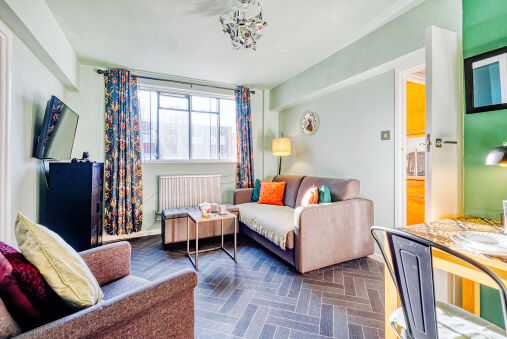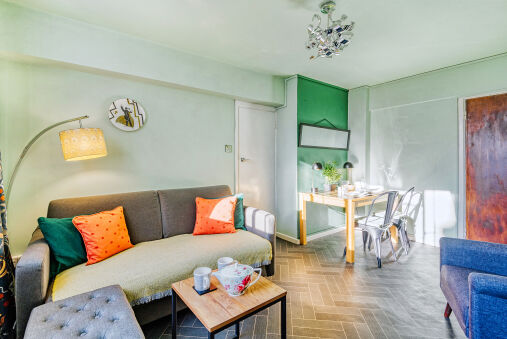Industry
7 Short Term Rental (STR) Myths Debunked
Considering buying a property to rent out for short-term rentals (STR) is a big commitment, and no one would blame you for being overly cautious about purchasing. However, there are some myths you may have heard from others which are either simply untrue or can easily be avoided with the correct property management style.
In this post, we’re going to take a look at some of the most common misconceptions surrounding owning an STR, including the state of the market, management challenges and concerns surrounding your return on investment.
Hotels are your number-one competitor
In any popular tourist or business destination, there will be several hotels for possible guests to choose from. For some, hotels are perfect if they’re just after a place to stay, however, most people also prefer having more space and more choices when it comes to feeding themselves for example.
Hotels often restrict guests in terms of what is on offer to eat. They are also very restrictive when it comes to space, often only offering a single room with a bed and basic kitchenette amenities. For this reason, many people prefer an STR home as it opens up their options. For this reason, many people will go for an STR property overbooking a hotel.
The STR space is overly regulated
When you see the amount of paperwork associated with buying a property and then making sure all your taxes and insurance are in line with the area’s STR policies, you can come to think that owning an STR property is hardly worth the administration.
However, this is actually quite easy to navigate, and once you have everything in place, you don’t have to worry about the admin all that much. Having regulations in place is also a massive advantage for you if your property qualifies but others don’t. Strict policy separates those who are serious about turning their STR home into a business from those who think it’s an easy gig.
You need to change your strategy according to the seasons
Since the pandemic, the lines between peak seasons and off-peak seasons have been significantly blurred, with many more people travelling while working remotely during times that were previously considered to be “off-peak”. Essentially, this means that there is higher overall short-term occupancy in a given area even when tourists are not expected.
But what does this mean for you? It means you can implement the same advertising and marketing strategies for your property during the supposed low seasons too. You may want to change your rates to maximise the occupancy opportunity, as off-peak seasons will definitely not be as busy as the peak times.
Lowering your rates means you will stay competitive, however, you may be able to keep peak rates for a longer period of time and you won’t change anything major about your marketing strategy. You can always do your research on what the other properties are doing with their rates to gauge where you’re at in comparison.

Running an STR property is a full-time job
If phrases like “but you won’t have time” and “that sounds like a lot to take on” sound familiar, you’ve probably been told that running an STR property is almost like having a full-time job. But don’t worry, you definitely will not have to quit your day job to run a successful STR business. After all, the goal is to generate additional income, not earn less!
If you know how to delegate properly and have the means to hire a property management company, you’ll easily reap the rewards without having to spend too much time actually running the STR property. Hiring cleaning teams and a firm to manage invoicing and inward and outward payments takes a lot of the work and stress out of running an STR business.
The property gets trashed by guests
Many people think that renting out your property puts you at risk of covering the costs of severe damage and possibly theft. But, with the right processes in place, you will be able to vet guests beforehand, which will reduce these risks and give you peace of mind when renting out your property.
You can also make sure your costs are covered by asking guests to put down a deposit which will cover any possible damage. Alternatively, you can also ask that they sign a terms and conditions form, which requests they cover any severe damage costs incurred during their stay at the property.
Your insurance will also cover damage caused by guests after you’ve received the right cover for renting out an STR.
You should only buy an STR property in popular holiday destinations
Having an STR property in a popular holiday destination will certainly help with occupancy. However, this doesn’t mean you should only purchase STR properties in these types of tourist destinations. Having a property somewhere popular is great, but it’s also risky given the fact that guests are presented with so many options.
For this reason, you can also have an STR in places less known by tourists. In fact, you may be at an advantage if there are limited accommodation options in a given area. People are becoming more and more adventurous, particularly after almost a year of not being able to travel. For this reason, an STR in more remote locations is exactly the kind of thing people are after.
The STR market is oversaturated
With the likes of Airbnb making it incredibly easy for anyone to be able to host guests on a short-term basis, it may seem like the STR market is oversaturated, particularly in popular areas. However, the demand for more places to stay is ever-increasing with more and more people being able to work remotely and wanting to take more trips.
The travel industry is booming at the moment and now could not be a better time to enter the STR market, especially if you have something special to offer in a unique location or own a property with draw cards in terms of facilities and location.








 london
london














